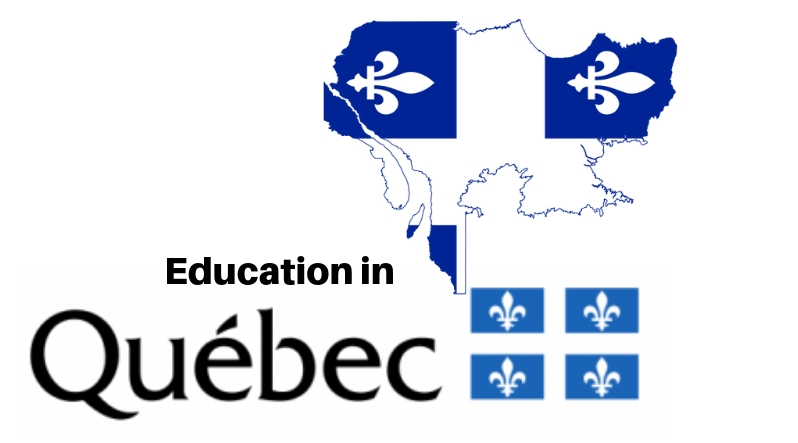Seule province francophone du Canada, le Québec abrite trois des dix universités de recherche du pays, ainsi que de nombreux collèges et écoles techniques d'excellente qualité.
Trois universités proposent des cours d'anglais et plusieurs autres concessions permettent aux étudiants de rendre leurs travaux en anglais.
Selon les modalités d'obtention des visas, le Québec peut également être l'un des pays les moins chers de l'Union européenne. Provinces canadiennes à étudier.
Faits concernant l'enseignement général
Au Québec, l'enseignement va de la maternelle (année 0) à la douzième année, avec une treizième année de formation collégiale dans le système du CEGEP (Collège d'enseignement général et professionnel).
Les municipalités sont responsables du fonctionnement des écoles sur leur territoire par l'intermédiaire des conseils scolaires locaux, qui sont divisés en fonction de la langue dans les régions où les populations anglophobes sont importantes.
Le ministère provincial de l'éducation, le ministère de l'éducation, des loisirs et des sports, est responsable de l'élaboration et de la gestion des programmes d'études provinciaux, ainsi que de la certification des enseignants.
Toutes les écoles du Québec doivent suivre le même programme de base, indépendamment de la religion, de l'affiliation politique ou de la langue d'enseignement, bien que de nombreuses écoles proposent des cours passionnants et des opportunités au-delà des exigences de base.
Faits concernant l'enseignement post-secondaire
Au Canada, il existe essentiellement quatre types d'établissements d'enseignement post-secondaire :
Les universités, qui sont habilitées à délivrer tous les niveaux de diplômes post-secondaires
les collèges universitaires, qui sont habilités à délivrer des diplômes en quatre ans et en deux ans, ainsi que des diplômes techniques
les collèges, qui sont habilités à délivrer des diplômes en deux ans et des diplômes professionnels
Les écoles privées qui offrent une formation religieuse, professionnelle, technique ou linguistique spécifique.
Au Canada, l'enseignement post-secondaire relève de la responsabilité des gouvernements provinciaux et territoriaux, et les provinces administrent tous les fonds fournis par le gouvernement du Canada dans le but exprès d'administrer les collèges et les universités.
Au Québec, le ministère responsable de la gestion de l'enseignement supérieur est le ministère de l'Éducation, du Loisir et du Sport.
Toutefois, le gouvernement fédéral offre encore diverses possibilités de financement aux particuliers et aux universités pour la recherche, l'aide financière aux étudiants et diverses bourses d'études.
Possibilités d'études supérieures au Québec
Université McGill, à MontréalElle est l'une des trois meilleures universités du Canada et figure fréquemment parmi les 25 meilleures universités du monde.
L'université compte plusieurs lauréats du prix Nobel, le programme de MBA le plus prestigieux du Canada, des installations de recherche de pointe, une faculté de droit parmi les trois meilleures et des dizaines de professeurs de renommée internationale.
Le réacteur nucléaire CANDU a été mis au point en face de l'endroit où Leonard Cohen a écrit ses premières chansons à succès, à deux pas de l'école de médecine de McGill, célèbre dans le monde entier.
L'Université Concordia est une université de langue anglaise située à Montréal.
Avec une école de commerce très prestigieuse, le programme d'administration publique le plus réputé de la province, un nouveau bâtiment d'ingénierie et un corps étudiant très international, Concordia est l'une des universités canadiennes les plus populaires auprès des étudiants munis d'un visa.
L'Université de Montréal est un établissement de recherche de langue française qui figure parmi les dix premiers et qui possède la plus grande capacité de recherche de la province.
Elle propose l'un des programmes de MBA les plus prestigieux du Canada, le meilleur département d'économie du Québec et la plus grande école de médecine de la province.
L'Université du Québec à Montréal est une université de langue française située au cœur du quartier latin de Montréal. C'est la plus grande université du Québec et elle offre d'excellents programmes de développement international, de commerce et d'économie.
L'Université Laval est une université de langue française université à Québec. La plus ancienne université du Canada, l'une des dix meilleures universités de recherche et l'Alma Mater de plusieurs premiers ministres du Québec et du Canada, Laval a récemment bénéficié de $200 millions de dollars de construction, ce qui ne fait que renforcer l'excellence de ses programmes de sciences appliquées et de droit.
Plus d'informations :




